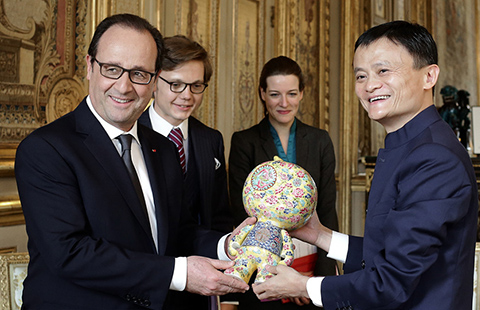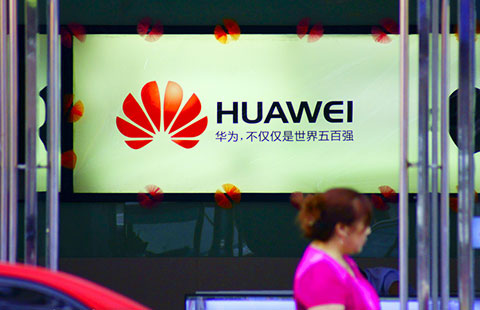Newcomers in China may find market saturated
By Xu Junqian in Shanghai (China Daily) Updated: 2012-07-20 10:06"Although 2011 has been a tough year for domestic retailers - sales have not been increasing as quickly as in the past and the market has become more and more divided by e-commerce - China remains a very lucrative place for foreign department stores, many of which are struggling among sluggish economic conditions in their domestic markets," said Ye Qizheng, a senior counselor for the fashion industry and the founder of the website Chinese Fashion Digest.
He said overseas tourism, especially trips during US or Western holidays such as Thanksgiving or Christmas, has let Chinese customers become familiar with foreign stores.
"So it's only a matter of time before more come over," Ye said.
Many are moving in that direction.
Takashimaya Co, a Japanese department store operator, plans to open a 40,000-square-meter shopping space in Shanghai's Gubei area, where many Japanese and other foreigners live.
The store, the product of the 180-year-old Japanese company's first investment in the Chinese mainland, will cost about 4 billion yuan. It will occupy eight stories and be open for business by the end of the year.
According to the company's representative in Shanghai, the store will mainly market its wares to the large numbers of the young and affluent who live in Shanghai.
And Galeries Lafayette, a French department store, is planning to return to China. A decade ago, it closed its store in Beijing - its first in Asia - after it had been open for no more than a year.
This time, the company is harboring even greater ambitions. In a statement, it said would open from 10 to 15 stores in China in the next three to five years. The first of them is to begin welcoming customers in 2013 and to be in Beijing.
The 18,000-square-meter store, which the Hong Kong-based retailer IT Limited is investing more than $3 million in, will be the company's largest aside from its flagship outlet in Paris.
Philippe Houze, chairman of Galeries Lafayette, said the company has learned lessons from its previous experiences in China. He said he expects the Beijing store to have annual sales of between 40 and 50 million euros ($49.1 million and $61.4 million).
One worry for retailers, though, is that the Chinese market may already be saturated with department stores.
Chao Gangling, business marketing professor with Shanghai University of Finance and Economies, believed that the supply of goods for sale in the domestic retail industry has surpassed the demand for such products.
Statistics from the National Commercial Information Center of China showed that the sales of 50 large department stores in China increased by 8.15 percent in the first quarter of 2012 year-on-year. That was down 14.41 percentage points from what the year-on-year rate had been in the same period of 2011.
Department stores' sales in the largest Chinese cities have been especially slow. Some have already fallen prey to the competition.
In late May, the 6,000-square-meter Shanghai No 1 Department Store on Huaihai Road, once one of the most popular in the city, was quietly closed and shuttered.
Representatives of Shanghai Friendship Groups, which operated the store, denied that the closing was the result of slow business.
Industry insiders said small and medium-sized stores - those containing less than 10,000 square meters of space - have a hard time competing in the ever-changing Chinese market.
For one, those that are new to it must always try to answer the difficult question of where to best set up shop.
"Retailing is not like being in a luxury industry," Ye said. "Unless you have something that is different from what has been sold in domestic department stores and also appeals to local customers, a retailer's foreign origin won't necessarily be a big attraction."
xujunqian@chinadaily.com.cn
- Forerunners show newcomers the way to market
- Adidas to open 600 more stores
- Franz's mainland focus goes on with 10 new stores in 2012
- Apple to open two more stores
- Pizza Hut opens store in China's plateau province
- Sales of China's top 100 chain stores hit 1.65t yuan
- Tesco to open 16 more energy-efficient stores in China
- HK Monetary Authority preparing access to China's bond and forex market
- China to roll out more regional financial reform scheme
- China to launch stock index circuit breaker early next year: Caixin
- China to launch stock circuit breaker on Jan 1
- China starts construction on major wind power project
- China's box office sales hit historic 40b yuan
- Chinese smartphone vendors dip toes in Indian market
- Didi to expand global market through rideshare agreement
















